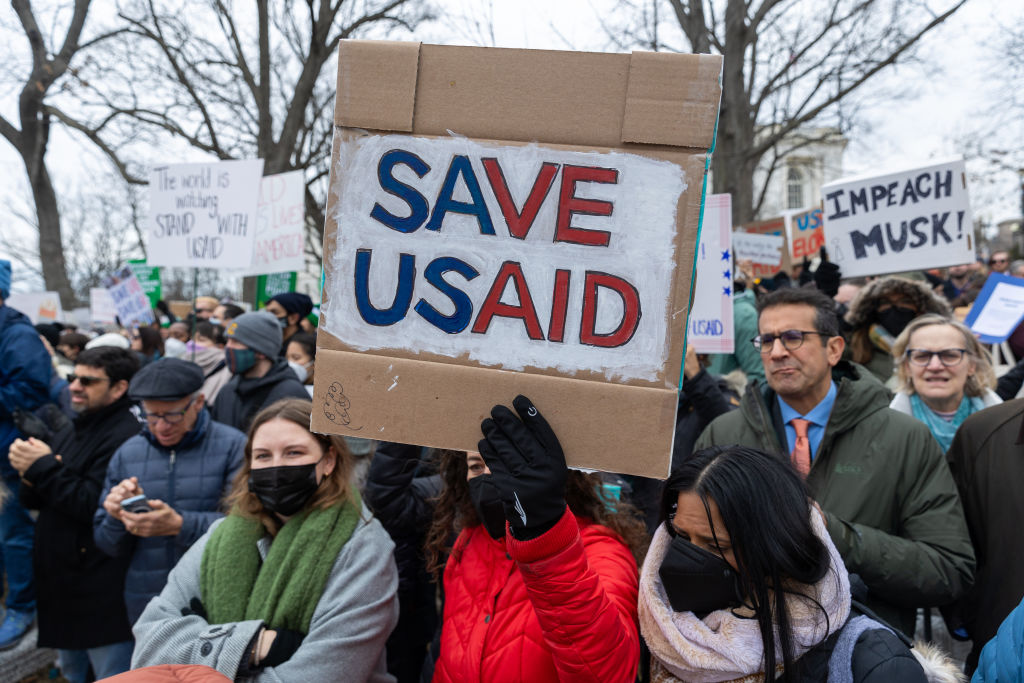
You don’t often hear politicians concede their mistakes, but that’s the pill I’ll swallow today, February 13, as a witness before the same foreign affairs congressional panel under which I was previously a subcommittee chair from 2017-2019.
I first came to Congress more than a decade ago to shock the system—a mandate to find and eliminate every possible cent of government excess that failed to deliver value to the economic and national security of the United States. At the very top of my list was foreign aid, which I considered a reckless extravagance that blew precious American tax dollars on vanity projects. I was wrong. It was only after my first foreign congressional delegation trips to Africa and Latin America that I understood that foreign assistance, when structured and deployed correctly, is a uniquely powerful soft diplomacy tool to strengthen the nation’s economy and national security. In fact, America’s interests are undermined when aid is poorly contrived and not rigorously evaluated.
[time-brightcove not-tgx=”true”]
Through my oversight of international assistance on the House Foreign Affairs Committee and as the Co-Chair of Aid Effectiveness Caucus, I eventually came to understand that thoughtfully designed and carefully supervised foreign aid advances U.S. interests by projecting American leadership in a sometimes fractured world, broadening and deepening political alliances and bilateral trade, and countering the influence of our adversaries and other malign actors who mean to do us harm.
Secretary of State Marco Rubio has said that all future international assistance must make America safer, stronger, and more prosperous. Most Americans would agree with that commonsense instinct. But as the Trump administration undertakes its foreign aid assessment under its wing, only two questions really matter: Does a program align with U.S. economic, national security, and foreign policy priorities? And can it demonstrate efficient values for American tax dollars? In cases where either answer is no, it’s important to identify more effective stewardship that makes America stronger and safer.
Read More: How Trump’s Foreign-Aid Freeze Is ‘Shaking the Whole System’
Amid the rancor and hysteria that so often grips Washington, we must come together on a bipartisan basis to support assistance that meets these criteria and to oppose programs that do not. We cannot afford to invest in programs that are not effective and strategic. While in Congress, I repeatedly championed legislation to mandate bilateral and multilateral aid reviews, and I urge colleagues on both sides of the aisle to prioritize these reforms once again. By clearly codifying into law the objectives and authorities of our international assistance programs in a bipartisan fashion, Congress would ensure that foreign assistance will not deviate from its core purpose nor fail to deliver value for Americans.
As our government endeavors to reduce our crippling national debt, we must acknowledge that we cannot afford to do everything, everywhere, all at once. Spreading ourselves too thin dilutes the humanitarian and strategic impact of our foreign assistance spending—that’s why the alignment with U.S. foreign policy priorities and programmatic efficiency tests are so important.
Speculation that the U.S. might eliminate its foreign aid program has been met with cheers from Beijing, to Moscow and Tehran. The band of developing countries that sit on vast natural resources and critical mineral deposits key to high-tech products are being told by our adversaries that America is no longer a trusted global partner. The economy our children inherit will suffer enormous harm if we are not vigilant and consistent in our efforts to counter China’s influence in the developing world. That means reactivating funding for programs that advance our interests.
Successive Democratic and Republican Administrations have tried to narrow USAID’s aperture and graduate countries off assistance, but none have succeeded meaningfully. This conversation is an opportunity to put aid beneficiaries on a journey to self-reliance and concentrate our assistance on geographies and economic sectors where we can have the most significant impact at home and abroad.
USAID, the federal agency tasked with implementation and oversight of the country’s aid budget and auxiliary programs, needed a hard reboot. But as we reboot, we can’t afford to retreat. I’m hopeful that President Donald Trump and Congress can come to appreciate, as I did years ago, the enormous and measurable value of effective foreign assistance.
After all, there’s good company in occasionally being wrong.



